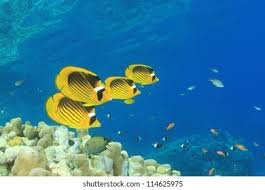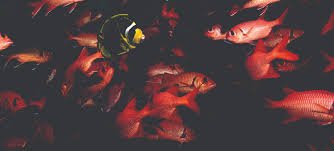
The Dragon Boat Festival, known as Duanwu Jie (端午节) in Chinese, is a vibrant and historic celebration that takes place annually on the fifth day of the fifth month of the lunar calendar. This festival, deeply rooted in Chinese tradition, is marked by lively boat races, the consumption of special foods, and various cultural rituals. Beyond the excitement of the races and the festive atmosphere, the Dragon Boat Festival holds profound significance in Chinese culture, intertwining themes of patriotism, remembrance, and the pursuit of health and protection. This article explores the importance and cultural meaning of the Dragon Boat Festival, its origins, customs, and how it has evolved into a global celebration.
1. Origins of the Dragon Boat Festival
The origins of the Dragon Boat Festival date back over two thousand years. The festival is most commonly associated with the patriot poet Qu Yuan (屈原), a beloved figure from the Warring States period (475–221 BCE) in Chinese history. Qu Yuan was a statesman and poet known for his deep love for his country, as well as his moral integrity and dedication to the welfare of his people.
Qu Yuan served as a loyal official in the state of Chu, but after a series of political intrigues and betrayals, he was exiled from the court. During his exile, Qu Yuan wrote a number of poignant and passionate poems about his country’s decline and the struggles of its people. His most famous work is the Li Sao (离骚), a long poem expressing his sorrow and disillusionment. When the capital of Chu was taken by a rival state, Qu Yuan, devastated by the fall of his beloved homeland, decided to end his life by drowning himself in the Miluo River.
Local people, who admired Qu Yuan’s patriotism and moral character, raced to the river in boats to try to save him. When they failed, they threw rice dumplings into the river as an offering to his spirit, hoping to prevent fish from eating his body. Over time, these acts of respect and remembrance evolved into the Dragon Boat Festival, which incorporates boat races and the ritual of eating zongzi (sticky rice dumplings wrapped in bamboo leaves), a key food associated with the celebration.
2. Dragon Boat Races: Symbolism and Significance
At the heart of the Dragon Boat Festival is the dragon boat race, a thrilling and highly competitive event held across China and other parts of the world with Chinese communities. The dragon boat races are often the centerpiece of the festival, attracting large crowds and symbolizing the ancient traditions of teamwork, bravery, and community spirit.
a. Dragon Boat Design and Symbolism
The dragon boat itself is an important symbol of the festival. Traditionally, the boats are designed to resemble dragons, with a carved dragon head at the bow and a dragon tail at the stern. The boat’s design reflects the ancient belief in the dragon as a powerful creature capable of controlling water and protecting the people. The dragon, in Chinese culture, is a symbol of strength, good fortune, and imperial power, and its presence in the boat races reinforces the idea of protection and good luck for participants and their communities.
The dragon boat races are not only a demonstration of physical skill and endurance but also a spiritual act. The boats are propelled by synchronized paddling, and the rhythm of the paddling is said to represent the unity and strength of the community. Teams from different regions participate, often dressed in bright colors and adorned with dragon-themed costumes to honor the spirit of Qu Yuan and the dragon’s role as a protector.
b. Competitive Spirit and Unity
The boat races are a showcase of teamwork, as the rowers must paddle in unison to propel the boat forward. This requires a great deal of coordination, communication, and mutual trust among the team members. The races often feature tight competition, with teams from different regions or organizations vying for the title of champion.
The festival’s emphasis on teamwork and collaboration highlights the importance of unity in Chinese society. The collective effort of the rowing teams mirrors the values of cooperation and solidarity that are central to Chinese culture. The races not only promote physical fitness and camaraderie but also strengthen social bonds within local communities.
3. Traditional Foods: Zongzi and Its Significance
Another central element of the Dragon Boat Festival is the preparation and consumption of zongzi. Zongzi are sticky rice dumplings wrapped in bamboo leaves and typically filled with various ingredients, such as meat, beans, egg yolks, or nuts. The shape of the zongzi resembles a small pyramid or triangular package, which is symbolic of the ancient practice of offering food to spirits and deities.
a. Symbolic Meaning of Zongzi
The act of making and eating zongzi has deep cultural significance. The rice dumplings are a direct tribute to the rice offerings that were made to Qu Yuan’s spirit during the early days of the festival. The bamboo leaves that are used to wrap the zongzi are also symbolic, representing purity and protection. In traditional Chinese belief, bamboo is seen as a strong and resilient plant, much like the dragon, and it symbolizes longevity, strength, and endurance.
The zongzi also have a practical origin. According to legend, after Qu Yuan’s death, the people threw rice into the river to prevent the fish from consuming his body. The zongzi are thought to be a continuation of this practice, representing the community’s collective effort to honor Qu Yuan’s memory and protect his spirit.
b. Regional Variations of Zongzi
Different regions in China have their own variations of zongzi, reflecting local tastes and traditions. In southern China, zongzi are often filled with sweet ingredients, such as red bean paste or dates, while in the north, savory fillings like pork, chicken, and salted egg yolk are more common. The variation in fillings highlights the diversity of Chinese culinary traditions and adds an element of regional pride to the festival.
Making zongzi is a communal activity, and families often come together to prepare them in advance of the festival. The process of wrapping the rice in leaves and tying it with string is a cherished tradition that brings people together and strengthens familial and community ties.
4. Cultural Significance and Health Beliefs
The Dragon Boat Festival is a time for celebrating both cultural heritage and personal well-being. It is believed that the festival has several health-related benefits, particularly in promoting protection and good fortune for participants.
a. Health and Well-being Rituals
In addition to dragon boat races and eating zongzi, there are various protective rituals performed during the festival. One common practice is to hang pouches of herbs, such as calamus and mugwort, over doorways or on windows to ward off evil spirits and promote good health. These herbs are thought to have cleansing properties and are believed to protect against disease and misfortune.
The festival also coincides with the start of summer, a season traditionally associated with the potential for illnesses and exposure to harmful elements. By observing these customs, people seek to protect themselves from sickness and ensure a healthy and prosperous year ahead.
b. Health Benefits of the Festival’s Activities
The physical exertion required for dragon boat racing is seen as a way to build strength, improve cardiovascular health, and boost stamina. The sport is popular for promoting teamwork, endurance, and fitness, and the races often take place in scenic river settings, allowing participants to enjoy the outdoors while engaging in physical activity.
5. Global Celebration and Influence
While the Dragon Boat Festival has its roots in China, its influence has spread far beyond the country’s borders. Today, dragon boat races are held in various parts of the world, from North America to Europe and Southeast Asia. Communities with Chinese heritage or those seeking to engage in cultural exchange take part in these exciting events, helping to bring the spirit of the Dragon Boat Festival to a wider global audience.
The international dragon boat racing community is large and diverse, with teams from around the world coming together to compete in races that embody the traditional values of teamwork, community, and celebration. These global events have helped raise awareness of Chinese culture and foster a greater appreciation for the historical significance of the Dragon Boat Festival.
6. Conclusion
The Dragon Boat Festival is far more than just a fun and exciting event; it is a rich cultural celebration that blends history, mythology, tradition, and community. Through its dragon boat races, the consumption of zongzi, and various rituals, the festival serves as a reminder of the virtues of loyalty, bravery, unity, and health. The festival’s connection to the memory of Qu Yuan continues to inspire generations, while its cultural practices have evolved into a celebration of life, prosperity, and community spirit. Whether in China or around the world, the Dragon Boat Festival remains an important occasion for honoring heritage, fostering unity, and ensuring the well-being of individuals and communities alike.





